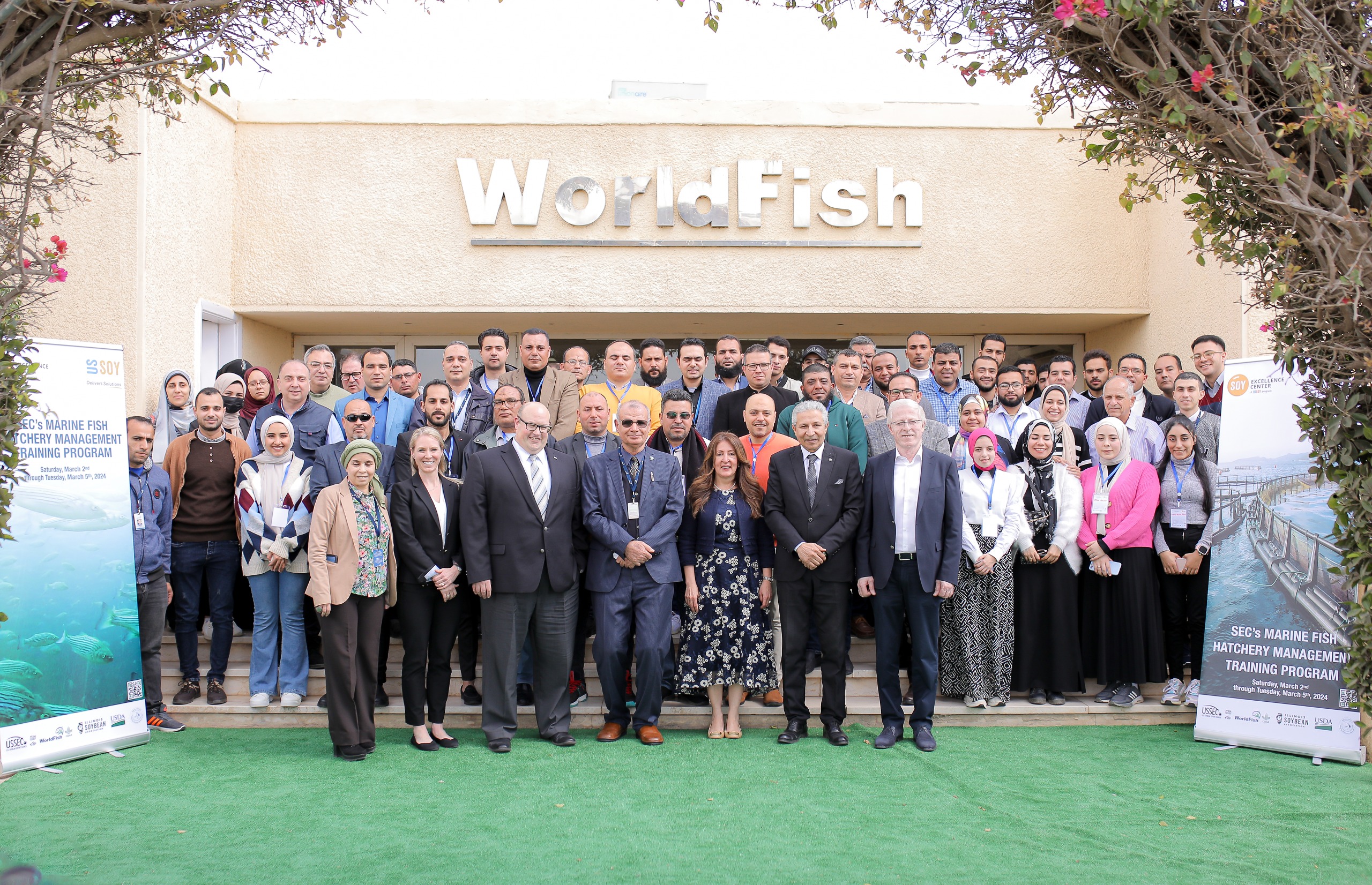
As the global population is projected to reach almost 10 billion by 2050, we must address the critical challenge of sustainably feeding this growing number of people. This will require innovative approaches and collaborative efforts across countries and industries. The Soy Excellence Center (SEC) leads this in major regions worldwide. SEC is an educational initiative by the U.S. Soybean Export Council (USSEC) and supported by the United States Department of Agriculture's Foreign Agricultural Service (USDA FAS) and the Soybean Checkoff.
The significance of this initiative was highlighted during the recent inauguration of the SEC's training program on 'marine fish hatchery management' in Abbassa, Egypt, representing a significant step in aquaculture development in the country and the Middle East and North Africa (MENA) region. This event marked the continuation of a vital educational endeavor and highlighted the commitment of the U.S. and Egypt to fostering sustainable agricultural practices.
Empowering the Next Generation of Aquaculture Professionals in MENA
Much of the MENA region continues to face the severe impacts of climate change, including extreme temperatures, droughts, and water shortages. With more than half of the MENA comprising of arid and water-deficient regions, innovative and creative ways are crucial to help better use limited and untapped aquatic resources — as is already being done in Egypt, the largest aquaculture producer in Africa, according to USDA FAS.1
WorldFish initiated an innovation hub at its Abbassa research and training facility in Egypt in 2019 to mobilize cross-sectoral partnerships for developing cutting-edge innovations toward inclusive, climate-smart aquaculture, a mission shared by SEC MENA's workforce and capacity-building programs.
SEC MENA has been an enthusiastic collaborator of WorldFish. Through its educational programs, SEC empowers farmers, producers, owners of fish farms, private hatcheries, and researchers. These programs are designed to elevate the aquaculture sector by integrating science, innovation, and sustainable practices. Egypt's recent marine fish hatchery management program is a testament to this approach. By engaging participants from diverse backgrounds and regions, the SEC and WorldFish are laying the foundation for a more sustainable and resilient aquaculture industry in Egypt and the MENA region.
Sustainability at the Core
Sustainability is a crucial focus of the SEC's training programs. As highlighted by U.S. Ambassador Herro Mustafa Garg, the collaboration between USSEC and WorldFish aims to reduce aquaculture's carbon footprint, aligning with global efforts to combat climate change and ensure food security. This is critical as the aquaculture sector in Egypt has seen a surge in production, driven by the need to meet the growing demand for protein amidst economic challenges. The SEC's initiatives are instrumental in supporting this growth in a sustainable and environmentally friendly way.
A Collaborative Effort Towards Food Security
The collaboration between USSEC, WorldFish, USDA FAS, and local Egyptian agencies reflect a unified approach to tackling the challenges of food security and climate change. Through initiatives like the SEC's aquaculture and other programs, stakeholders can share experiences, knowledge, and resources, fostering a community of practice that spans continents. This cooperation is essential in developing solutions that are not only effective but also scalable and replicable in different contexts.
U.S. Ambassador Herro Mustafa Garg noted, "Our USDA team at the embassy aims to connect U.S. agricultural industries to foreign partners through non-profit commodity or trade associations. The U.S. Soybean Export Council is one of those fantastic partners and one of the most active groups in Egypt. USSEC's training programs in Egypt have opened opportunities for shared experiences and partnerships."
Ambassador Garag further added, "Through our cooperation, we are able to tackle some of the world's greatest threats to food security by strengthening our trading relationships and expanding economic opportunities for our agricultural sectors. WorldFish is a prime example of this cooperation!"
Nourishing the Future
As the world moves closer to the 2050 milestone, the role of initiatives like the SEC becomes increasingly essential. The success of SEC programs in Egypt is a promising indicator of the potential impact such efforts can have on a global scale.
Food security and climate change challenges require concerted collaborative efforts and creative solutions. The Soy Excellence Center, with the support of USSEC, USDA FAS, the soybean Checkoff, and partners like WorldFish, exemplifies the intentionality needed to ensure a food and nutrition-secure future for all. By feeding the minds of those who will feed the world with the knowledge and skills to implement sustainable practices, the SEC contributes significantly to the global effort to nourish a growing population responsibly and sustainably.
This story was partially funded by U.S. Soy farmers, their checkoff and the soy value chain.
###
